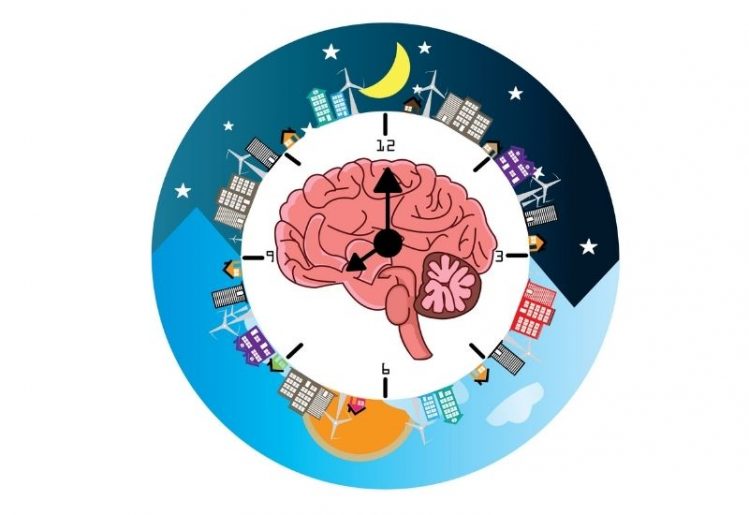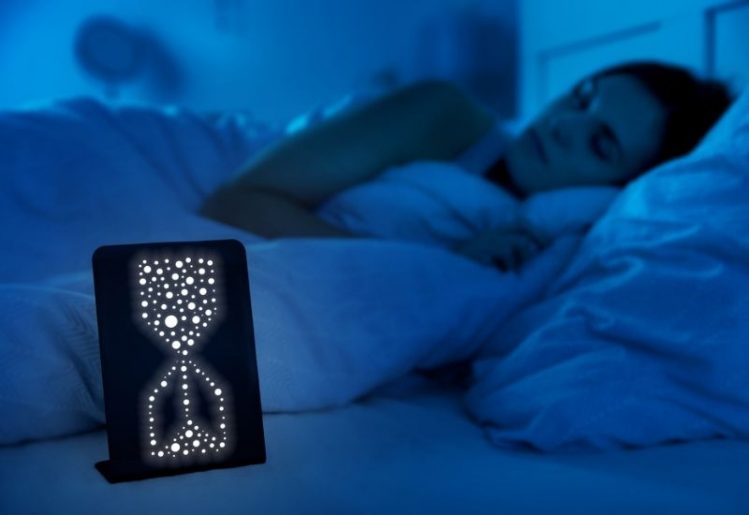How to Get Enough Sleep After Daylight Saving Time Changes
Are you struggling to regulate your sleep after daylight saving time ended? You are not alone in this struggle. While it is less disruptive to fall back in November than it is to spring forward in March, you are not in the minority if you feel like you are dragging a bit.
Although a one-hour shift does not seem like a significant change, those 60 minutes can wreak havoc on the body's natural circadian rhythm. Here is what you need to know about this body process and how you can stay on track as your body's clocks are pushed back one hour.
What is the Circadian Rhythm?
 Before we dive into the effects of time changes on the body, it is important to understand what a circadian rhythm is and how it works. Circadian rhythms are the body's natural 24-hour cycles that dictate a number of the body's most important processes. Most people associate a circadian rhythm with the sleep and wake cycle.
Before we dive into the effects of time changes on the body, it is important to understand what a circadian rhythm is and how it works. Circadian rhythms are the body's natural 24-hour cycles that dictate a number of the body's most important processes. Most people associate a circadian rhythm with the sleep and wake cycle.
When your circadian rhythm is firing on all cylinders, you will be more likely to enjoy consistent and quality sleep cycles. Conversely, a disrupted circadian rhythm is more likely to lead to a number of sleeping issues, including insomnia. As such, it is not surprising to learn that a malfunctioning circadian rhythm can lead to a host of negative effects on overall physical and mental health.
The circadian rhythm is best described as a master clock residing in the human brain. This clock is regulated by a variety of environmental cues, chiefly light and darkness. For example, as the sun rises in the morning, this clock triggers the release of cortisol, a hormone that signals to the body that it is time to wake up and get going. Likewise, the master clock is also responsible for the production and release of melatonin in the evening hours. This hormone is responsible for telling the body that it is time to wind down and go to sleep.
How to Maintain a Healthy Circadian Rhythm
Because a healthy circadian rhythm is essential to a healthy lifestyle, it would behoove you to take proactive steps to maintain this cycle, especially after a time change. One of the best ways to support a properly functioning circadian rhythm is to regularly seek out natural light, particularly early in the day. Getting out and exercising in this morning light will reinforce your internal clock, encouraging better sleep patterns.
It is also a good idea to be purposeful about following a regular sleep schedule. The more that you change up your bedtime and wake-up times, the more likely it is that your circadian rhythm will get out of whack. Many people also find that it is easier to support your body's natural circadian rhythm if you limit your consumption of caffeine and turn off artificial light in the hours prior to bed.
Lastly, taking a melatonin supplement at night can go a long way towards maintaining an optimal circadian rhythm.
How the Change in Time Affects Sleeping Patterns
Daylight Savings Time officially ended at 2 a.m. local time on Sunday, November 7. Unless you live in the states of Arizona or Hawaii, you needed to set your clock back one hour at this time. Standard time will remain in effect until Sunday, March 13, when most Americans will move their clocks forward one hour to jump back into Daylight Saving Time. The goal of daylight savings is to conserve natural light and energy during the time of the year when daylight is harder to come by.
Because the change in the clocks also shifts the daylight hours, it makes sense that some people are at risk of developing a disrupted circadian rhythm during this time of the year. Because an hour of time is "lost," the change from standard time to Daylight Saving time in March is undoubtedly harder on most people. However, some individuals also report difficulties staying awake until the normal bedtime or adjusting to the new wake-up time even when the clocks are moved backward.
How to Ensure Good Sleep After Daylight Saving Time Ends
 While there is no doubt that you may feel groggy in the days or weeks following the time change, there are things that you can do to ensure that you are getting enough sleep during this transition. The key to getting through those first weeks after a time change is to adopt the same habits that also help to maintain a healthy circadian rhythm in general.
While there is no doubt that you may feel groggy in the days or weeks following the time change, there are things that you can do to ensure that you are getting enough sleep during this transition. The key to getting through those first weeks after a time change is to adopt the same habits that also help to maintain a healthy circadian rhythm in general.
This means that you need to be diligent in practicing a good sleeping routine that encourages a restful slumber. While you may be tempted to take a nap if you naturally wake up earlier in the first weeks after setting your clocks back, it is better to power through so that the daytime sleeping does not disrupt your rhythm. If you must take a nap, be sure to limit it to 20 minutes or less.
Remember that this period of grogginess will pass. However, being aware of the reason for the biological change to the circadian rhythm and taking the active steps to promote better sleep patterns will make for an easier transition.




